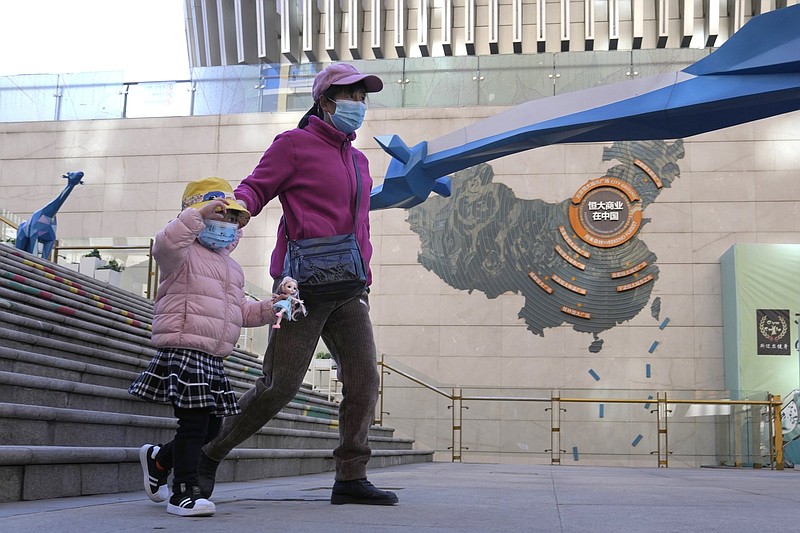BEIJING -- A troubled Chinese real estate developer with $310 billion of debt is asking investors in one of its bonds to postpone when they will be repaid.
Evergrande Group will conduct a three-day online vote starting Friday for holders of the $700 million bond, according to an announcement made through the Shenzhen Stock Exchange in southern China.
Evergrande, the global real estate industry's most indebted competitor, said the bond is due to mature in January 2023. It gave no indication of how long investors would be asked to postpone repayment.
The company's struggle to avoid defaults while it tries to comply with tighter official limits on borrowing by China's real estate industry has prompted fears of a financial crisis. Chinese regulators have tried to reassure investors that the fallout from any possible default can be contained.
Evergrande says it has $350 billion in assets and $310 billion in debt, but it is struggling to sell real estate and other assets fast enough to keep up payments to bondholders and other creditors.
The development comes as China edges closer to potentially overhauling the world's most indebted developer that was started 25 years ago by Hui Ka Yan. A lengthy battle over who gets paid from what remains.
Beijing has been reluctant to bail out Evergrande as it sends a clear signal that the Communist Party won't tolerate debt build-ups that threaten financial stability.
Evergrande was labeled a defaulter for the first time in early December as it missed making payments on dollar bonds. A seven-member risk management committee was established at that time to "actively engage" with creditors. That panel includes senior managers from Guangdong state-owned enterprises and China Cinda Asset Management Co., the nation's largest bad-debt manager.
Evergrande will likely not repay any bonds until an overall restructuring plan comes out, according to Ting Meng, a senior credit strategist at Australia & New Zealand Banking Group Ltd. Onshore notes don't have grace periods so any failure to repay could trigger a default, and the move could help sidestep that for now if the company gets agreement from creditors, though eventual repayment would depend on how the restructuring shapes up, she said.
Evergrande's cash crunch has become a focus for global investors who are concerned that a collapse might spark financial contagion and curb growth in the world's second-largest economy, which depends on the housing market for about a quarter of gross domestic product.
Its dollar bonds are trading at deep discounts to par value as investors brace for what could be one of China's largest-ever restructuring processes.
Beijing tightened restrictions on developers last year in a campaign to rein in surging corporate debt. The ruling party has made reducing financial risk a priority since 2018.
Smaller developers have gone bankrupt or defaulted on hundreds of millions of dollars in bonds.
Information for this article was contributed by staff members of The Associated Press and by staff members of Bloomberg News (WPNS).
